i. propaganda, consumerism
& origins of mass media
if you tell a lie big enough and
keep repeating it, people will
eventually come to believe it.

Note: We present quotes and images of Dr. Goebbels merely as a
relevant historical figure. We do not endorse any part of the National
Socialist ideology, and we are not affiliated with, or support, any
Neo-Nazi organizations.
Achtung! Wir zeigen Zitate und Bilder von Dr. Goebbels ausschließlich als eine relevante Figur der Geschichte. Wir befürworten weder die nationalsozialistische Ideologie, noch unterstützen wir jegliche Neo-Nazi Organisationen in irgendeiner Weise.

As stated in the Introduction, Remember is dedicated to exploring just how the American public and the larger global community has come to believe wholeheartedly in the legitimacy of "multi-culturalism" - despite the fact that a selectively engineered version of it (click link above) has been implemented by those in charge of the American media to covertly enforce a code of white male hegemony in the minds of all consumers and citizens, thereby undercutting the efforts of "liberals" to create and enforce an egalitarian social order that is colloquially known as a "color-blind society".

But in order to do this, it is first necessary to achieve a holistic understanding of how this global deception has transpired. And to this end, we will now examine the History of Mass Media.
war-time propaganda: the precursor of public
relations & mass media
In an ominous coincidence and perhaps a foreshadowing of things to come, Edward Bernays, the inventor of Public Relations (itself a precursor to advertising and mass media), is said to have been directly influenced by the dictums of propaganda developed by Joseph Goebbels, Nazi Germany's chief propagandist.
Although all nations at war employ propaganda methods to control and channel the thoughts and actions of their respective populations, the best modern example of a total ideological stranglehold on a population is perhaps Germany between the years of 1933 and 1945, when the National Socialists (or Nazis) took power.
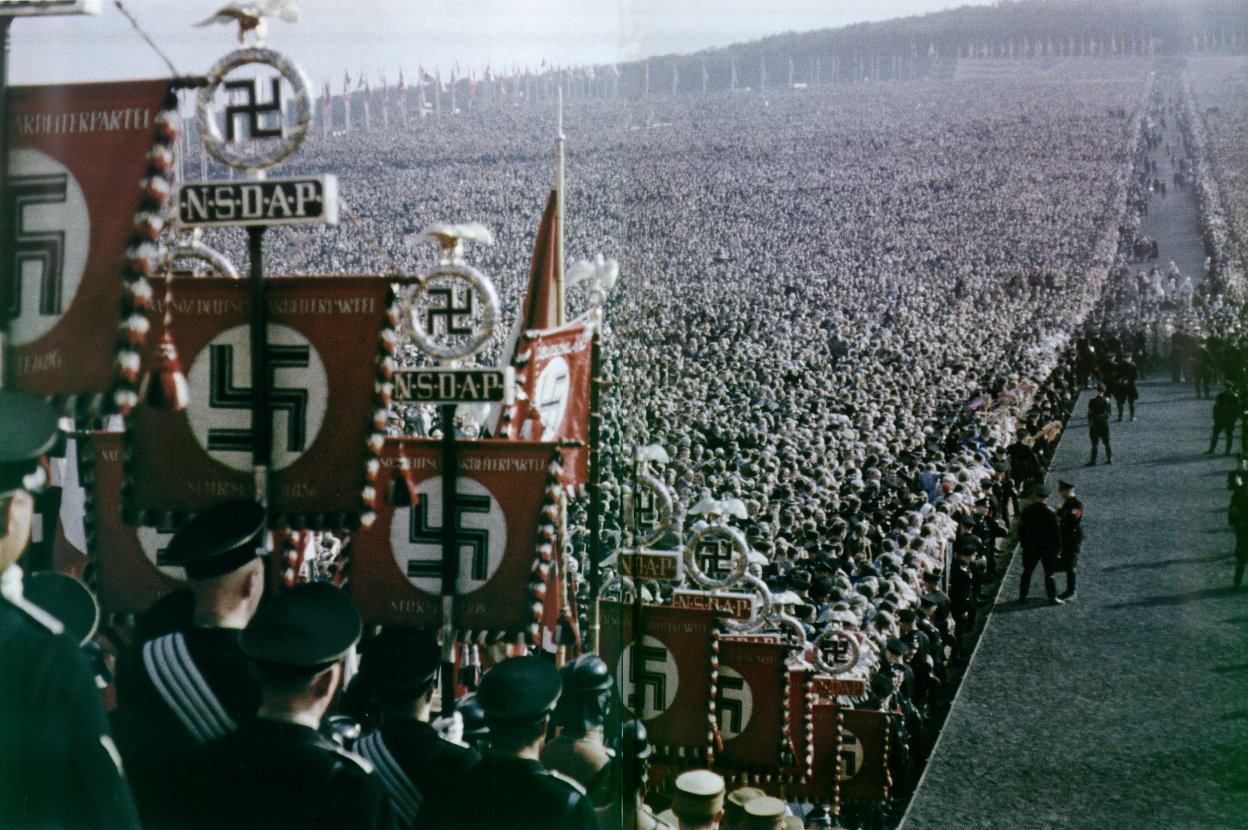
Upon seizing power as German Chancellor in 1933, Adolf Hitler established a Reich Ministry of Public Enlightenment and Propaganda headed by Joseph Goebbels. The Ministry's aim was to ensure that the Nazi message was successfully communicated through art, music, theater, films, books, radio, educational materials, and the press.
Hitler's appointment of Goebbels, a demonically talented demagogue who was slavishly devoted to the Führer and his ideas, underscored his personal beliefs about the connections between political power and mass population control. He expressed these in his infamous personal political testament Mein Kampf:
"Propaganda tries to force a doctrine on the whole people... it works on the general public from the standpoint of an idea and makes them ripe for the victory of this idea."
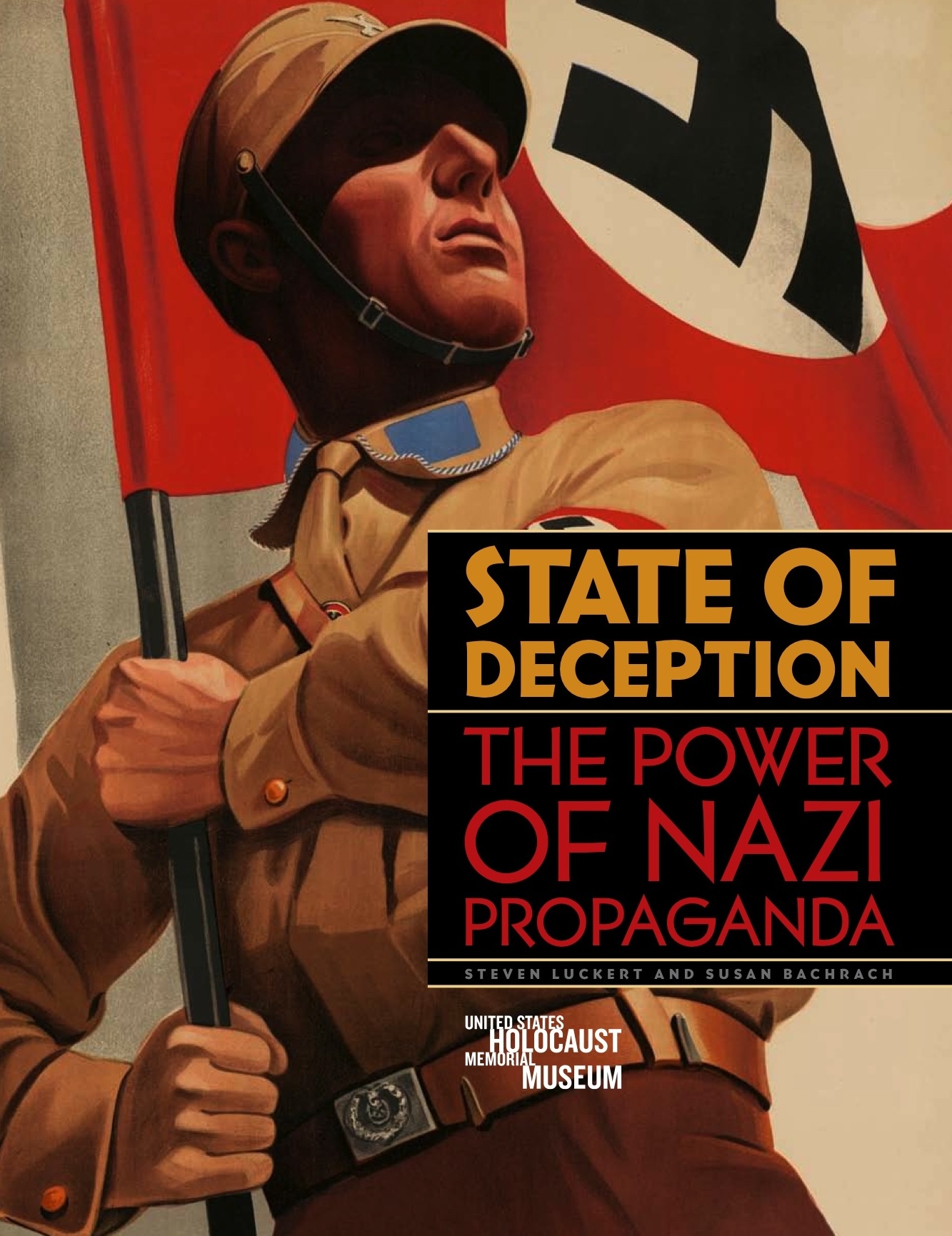
(Credit: Kunstbibliothek Berlin/BPK, Berlin/Art Resource, New York)
In his apprenticeship under Hitler, Goebbels brought the science of mass population control to new heights with with a totally comprehensive program of propaganda that permeated every layer of German society.
In the 12 years the Nazis were in power, the German people's entire 'diet' of information consisted of a un-ending stream of heavily censored and "engineered" radio broadcasts, public speeches, films, and even children's school books that enforced the Nazi's singular political and racial ideology.
Such a relentless and coordinated assault on the mind of the average person had an immensely powerful effect in shaping the thoughts, beliefs and opinions of the majority of the German people.
edward bernays, public relations, & the birth of
mass consumerism
The next evolution in the science of mass population control came with the advent of Public Relations, which is the precursor to what we today call 'the Media'.
Public Relations can be defined as the practice of managing communications between an organization and the general public.
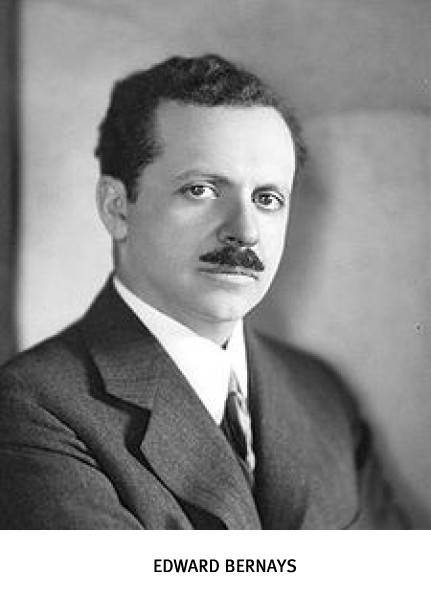
And Bernays, who was strongly influenced by the Goebbels and the Nazi's rise to power through the use of propaganda - is widely credited today as the "father of modern public relations".
Ironically, Bernays was the nephew of the famous psychoanalyst Sigmund Freud, who had fled Germany as a Jew in 1938.

A year after being born in Vienna, Bernays emigrated with his family to New York City in 1892. He graduated from Cornell University in 1912 with a degree in agriculture, but chose journalism as his first career.
Hugely influenced by his uncle's (Freud's) theories surrounding the 'unconscious mind' and the 'repression' of dangerous and irrational human desires - Bernays believed that these impulses, which were bubbling under the surface of every man and woman, had to be controlled through an outlet of some sort.
Toward this end, he believed that the masses had to be 'benevolently' manipulated into participating in mass consumption, which he proceeded to do with spectacular success in partnership with the government and American corporations, becoming immensely wealthy and powerful in the process.
This model of mass manipulation envisioned by Bernays is called a 'mass production economy'.
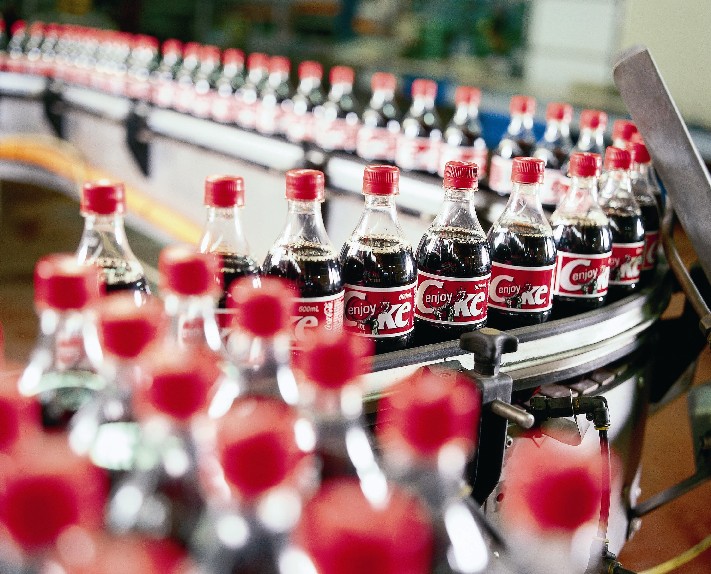
This of course goes hand-in-hand with mass consumption, and in this system, a large base of 'consumers' purchase goods produced en masse in factories owned by corporations. This consumption creates demand, and to meet the demand the factories produce more goods, which the masses then purchase and consume, driving demand yet again.
Thus a cycle of demand and consumption, or modern consumerism was born.

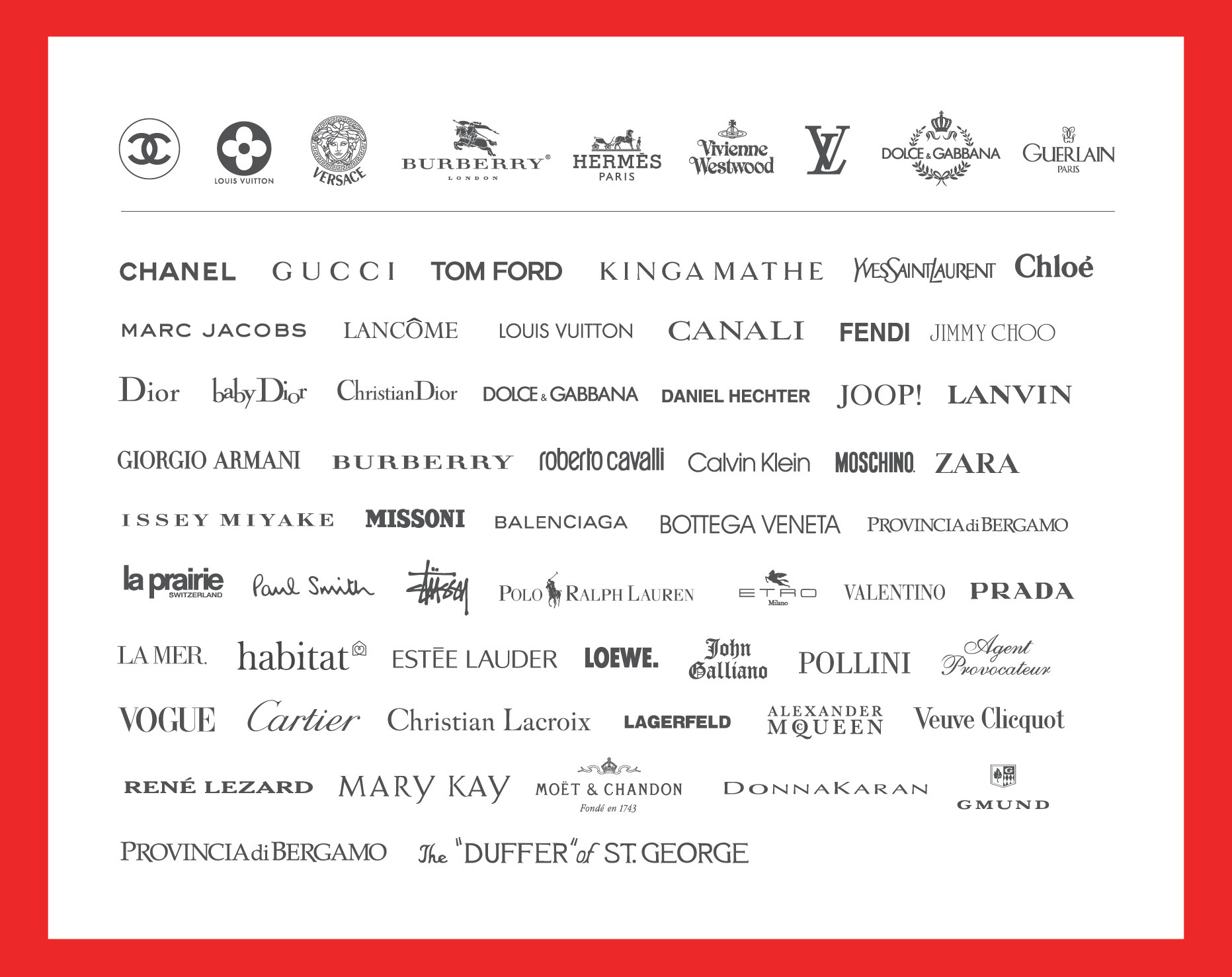
According to Bernays, this pattern of consumerism provided the masses with an outlet for the pent-up irrational, dangerous, and often violent desires they possessed - which if left uncontrolled or un-channeled, threatened the very fabric of society.
A corollary benefit of this system, but undoubtedly the primary motivator for corporations seeking massive profits and a Government intent on maintaining the status quo - was the fact that this cycle of production and consumption would also prop up the economy, while keeping the masses under control through a steady 'diet' of consumer products.
the engineering of consent
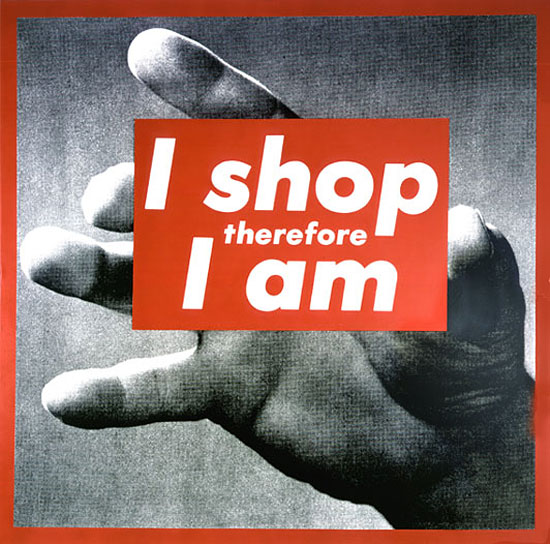
The most ingenious element of this theory, which Bernays called the 'engineering of consent', involved subtly convincing each person that it was their idea in the beginning to purchase the product or service.
This ruse was spectacularly employed by American corporations under the direction of Bernays' contemporary, Ernest Dichter, and worked by targeting the fear, paranoia, and vanity inherent in every human being.
Thus, it tricks the individual into thinking that they 'need' consumer items and therefore choose to purchase them (consumer items are inherently different from essential goods, in that they are not needed for basic survival or sustenance) - which gives the consumer the illusion of choice, and thus of power.

A classic and representative example would be the apparel and cosmetics industries, which claim to empower women by fixing their appearance but actually make them dependent on the companies that produce these items for their sense of identity and self-esteem.

Essentially, millions of women around the world end up building their personal identities around these corporations and their brands, which is precisely what they want and intend.
Contrary to this purported notion of "empowerment through consumption", the stark reality is that all the power is put in the hands of the corporations that make and market these consumer items through the media.
the century of self, a film by adam curtis
In conclusion, a clear line of succession has been established in this section of AMR | Remember: from the development of the political art of Propaganda to the advent of Public Relations, and finally to the entrenchment of Modern Consumerism in contemporary society.
British documentary film-maker Adam Curtis recounts this process in the BBC documentary series, 'The Century of the Self':
the century of the self - part 1
the century of the self - part 2
the century of the self - part 3
In the second chapter of Remember, we will examine how the notions of 'multiculturalism' and 'diversity' were injected into this model of mass consumerism by corporations - in order to profit from a false front of empathy, inclusion, and civic service.